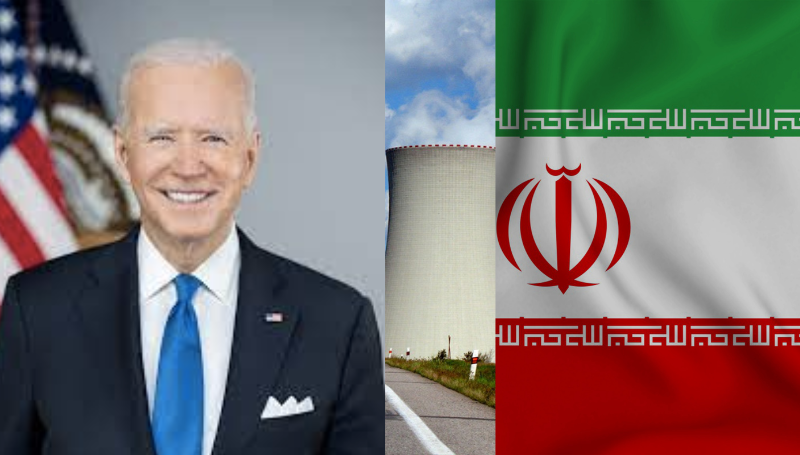Tamar Eilam Gindin
Israel Hayom, July 14, 2022
“Iranians on social media are less interested in the travels of Joe Biden this week. There are practically no independent tweets or posts on the matter.”
In the eyes of the Islamic republic’s leadership, the most interesting aspect of Biden’s visit to Israel is the direct flight from the Jewish state to Saudi Arabia, or more accurately, its significance and the talks that will apparently take place surrounding it. It seems the very thought of the possible implications of the visit has put the authorities in Tehran on the defensive.
In the cabinet meeting in Tehran on Wednesday morning, Iranian President Ebrahim Raisi issued a warning: “If the visits of American officials to the countries of the region are aimed at strengthening the position of the Zionist regime and normalizing its relations with certain states, these efforts will not bring security to the Zionists.”
Tehran doubly afraid
The Islamic republic is doubly concerned about the Abraham Accords in general and growing Israeli-Saudi ties in particular. First and foremost, this is a justified existential fear that Israel will do to Iran what Iran has been doing to Israel for years through its presence in Syria, Lebanon, and Gaza: It is becoming its “neighbor” by forging military alliances with enemy countries on its borders.
Israel is already in Iraqi Kurdistan and Azerbaijan and is now getting friendly with Iran’s neighbors to the south: the United Arab Emirates, Bahrain, and Saudi Arabia. The Iranian authorities describe this as a “knife in the back.” Raisi said in his speech that he has already sent the Americans several messages via mediators, threatening “a decisive response to even the slightest movement against Iranian sovereignty.”

The second concern pertains to the Islamic republic’s standing in the Islamic world. It’s clear that Saudi Arabia is the leader of the Sunni world and Iran is the leader of the Shiite world, but the fight for the mantle of leadership of the Muslim world is yet to be decided. Saudi Arabia possesses one significant advantage over Iran: Mecca. And lots of money.
The only thing the Islamic republic has left in this fight is to unite all streams of Islam against a common enemy. And who is more suited than Israel for this role? The excuse, of course, is “defense of the oppressed Palestinian people,” despite the fact that Iran’s Arab inhabitants in Khuzestan Province are fighting for the exact same things: They are discriminated against and aspire to self-determination. Within the framework of its efforts to unite the Islamic world against Israel, any inkling of rapprochement between Israel and Arab countries is immediately interpreted as a betrayal of the Palestinian people. Tehran’s obsessive defense of the Palestinians has often been described as “overprotection” – in other words, the Iranians try defending them in areas where the Palestinians don’t want or need to be protected, starting with negotiations and cooperation, when these things do occur, to joint soccer matches.
Iranians care about the hijab
And why am I mostly writing this time about the authorities in Iran instead of the reactions online? Because Iranians on social media are less interested in the travels of Joe Biden this week. There are practically no independent tweets or posts on the matter. Those that do exist in Farsi are largely anti-American and anti-Israel but are essentially written by Afghanis (the languages are almost identical in writing, but some of the words, along with the spelling of names and personal information, reveal the writers’ identities).
Iranians this week have been far more interested in women’s head coverings. Tuesday marked the anniversary of the Goharshad Mosque rebellion in 1935, when worshippers clashed with the Shah’s security forces, which wanted to enforce a Westernized dress code on men in Iran. While the government declared it “National Hijab and Decency Day” and has sponsored pro-hijab women’s rallies (at the same stadium where women are fighting for the right to attend soccer games!), secular women, led by journalist Masih Alinejad, launched their own “#No2Hijab” campaign – in which many women removed their head coverings in public places and even posted videos on social media. The battle between the pro-hijab and anti-hijab camps has grabbed far more attention on social media and in the press than Israel, the US, Saudi Arabia, and their joint plots against Iran.
To view the original article, click here


